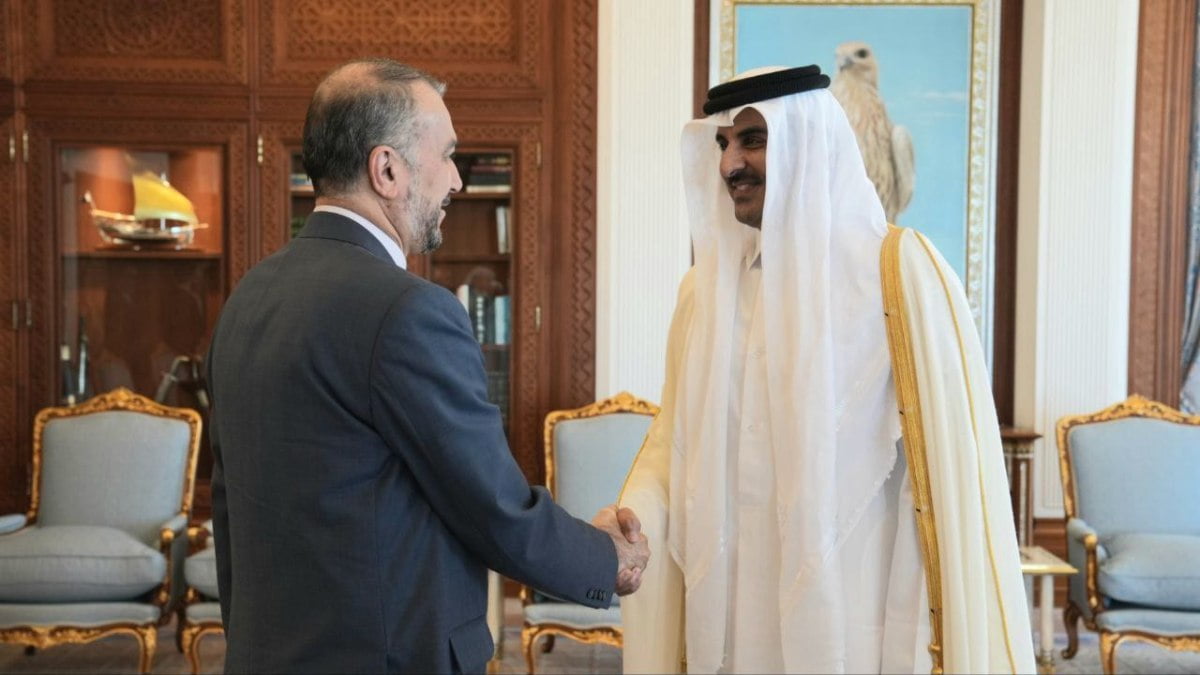Amirabdollahian said he discussed a UN-proposed regional dialogue forum, in addition to trade and investment prospects.

By
Tehran, Iran — Iran has promoted a regional dialogue and cooperation forum during a four-country tour by Foreign Minister Hossein Amirabdollahian as he met with top officials in neighbouring Arab countries.
Amirabdollahian visited Qatar, Oman, Kuwait and the United Arab Emirates (UAE), between June 19 and late on Thursday.
The Iranian top diplomat welcomed a proposal by United Nations Secretary-General Antonio Guterres to convene an eight-country regional forum in New York in September.
The forum would include Iran, Iraq, Saudi Arabia, the UAE, Qatar, Oman, Kuwait and Bahrain and is envisaged to continue its work beyond the UN General Assembly gathering, Amirabdollahian suggested.
“We agreed with top officials and my counterparts in the four countries to take the secretary-general’s initiative as a good omen and engage in more effective measures to follow up on initiatives within this new framework.”
Still under tough United States sanctions imposed since 2018 after Washington unilaterally withdrew from Iran’s 2015 nuclear deal with world powers, Tehran has been pursuing a policy of improving ties, especially economic relations, across the region.
In Doha, Amirabdollahian met Emir Sheikh Tamim bin Hamad Al Thani and Foreign Minister Sheikh Mohammed bin Abdulrahman bin Jassim Al Thani, while in Muscat he sat down with Mohammed Abdulsalam, the chief negotiator of the Iran-backed Houthi movement in Yemen, at the Iranian embassy.
A truce and engagement with the Saudi-backed Yemeni government is holding following the rapprochement between Tehran and Riyadh after a China-brokered agreement in March that has seen the two regional heavyweights restore diplomatic relations after seven years.
Trade and investments were a key focus of Amirabdollahian’s as a way to bolster bilateral ties and security across the region when he met with Saudi Foreign Minister Prince Faisal bin Farhan Al Saud in Tehran last week, as the longtime rivals seek to end a diplomatic rift.
Amirabdollahian held talks with his Omani counterpart, Sayyid Badr Albusaidi, and Sultan bin Mohammed al Nu’amani, the Minister of the Royal Office.
In Kuwait, he met Sheikh Nawaf Al Ahmad Al Sabah, who formed a cabinet earlier this week after being reinstated as prime minister .
For the final leg of his trip, Amirabdollahian visited Abu Dhabi and met with his counterpart Abdullah bin Zayed Al Nahyan, and President Sheikh Mohamed bin Zayed Al Nahyan , also known as MBZ.
Amirabdollahian invited the president, who is the ruler of Abu Dhabi, to visit Tehran. MBZ reportedly invited Iranian President Ebrahim Raisi to his country.
Sheikh Abdullah, the UAE foreign minister, drove the Iranian diplomat in his private vehicle, footage of which was widely shared by Iranian media who called it a “friendly and intimate” gesture.

At each stop, Amirabdollahian mostly emphasised improving bilateral economic and trade relations, in addition to dialogue-building.
The regional tour also came as Iran and the US have been holding indirect talks, which have for long been mediated by Oman and Qatar, in an effort to keep tensions in check amid fading hopes to fully restore the Joint Comprehensive Plan of Action (JCPOA) , as the nuclear accord is formally known.
Tehran and Washington have refrained from commenting on the details, but reports indicate that they may come to an understanding rather than a major signed agreement.
Iran maintains that its nuclear efforts are peaceful and this could potentially include an arrangement on its nuclear advancements in addition to unfreezing billions of dollars of Iranian money locked abroad to facilitate a prisoner swap with the US.
Iran’s chief negotiator Ali Bagheri Kani was in Doha this week and met with the European Union’s senior representative in the nuclear talks, Enrique Mora. Bagheri said the talks were “serious and constructive”.
Bagheri announced earlier that he had a meeting with his counterparts from France, Germany and the United Kingdom, the three European powers party to the JCPOA, in Abu Dhabi, indicating the UAE may also be eyeing a new mediating role between Tehran and the West.

